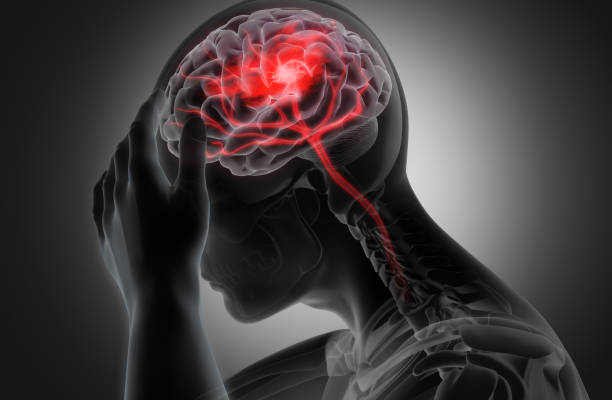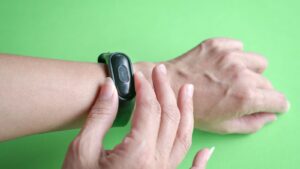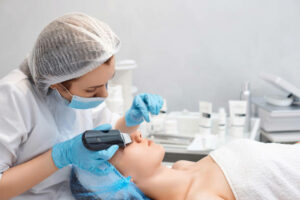
Symptoms of a Concussion
If you or a loved one has experienced a traumatic brain injury such as a concussion, it is important to be aware of the symptoms and be able to recognize them in order to seek appropriate medical care. Concussions can cause a variety of physical and psychological symptoms, and if left untreated, can lead to more serious physical and mental health issues, such as depression.
Let’s take a closer look at the symptoms of a concussion and how they can affect mental health.
Common Symptoms of a Concussion
A concussion is a mild traumatic brain injury that can occur after a hit, jolt, or blow to the head. Here are some common symptoms of a concussion:
- Headache or pressure in the head
- Dizziness, nausea, or vomiting
- Blurred vision or sensitivity to light/noise
- Confusion or feeling foggy
- Mood changes, such as irritability or anxiety
- Difficulty with balance or coordination
If you or someone you know is experiencing these symptoms after a head injury, it is important to seek medical attention right away. A healthcare provider can diagnose a concussion through a physical exam, neurological exam, and imaging tests if necessary. It is also important to note that concussions can cause depression in some individuals, so monitoring your or your loved one’s mood after a head injury is crucial.
Delayed Symptoms of a Concussion
Concussions are traumatic brain injuries that can have delayed symptoms, making them difficult to diagnose and treat in some cases. While concussion symptoms typically appear within the first few hours or days after the injury, some people may experience a delay before they are diagnosed with a concussion.
The symptoms of a concussion include headache, dizziness, confusion, nausea or vomiting, and sensitivity to light and noise. If you suspect that you or someone you know has suffered a concussion, it’s important to seek medical attention right away.
A healthcare provider can perform a thorough evaluation to determine the extent of the injury and develop a treatment plan. It’s worth noting that in some cases, concussions can cause depression or other psychological symptoms that can appear days or weeks after the initial injury. If you experience persistent symptoms or changes in mood after a concussion, be sure to discuss them with your doctor to receive appropriate care.
How Long Do Symptoms of a Concussion Last?
The symptoms of a concussion can last anywhere from a few hours to several weeks, depending on the severity of the injury and the individual’s age, health, and previous medical history. Common symptoms of a concussion include headache, dizziness, confusion, memory loss, nausea, and sensitivity to light and noise.
If you suspect you or someone else has a concussion, it’s important to seek medical attention right away. A doctor or healthcare professional can evaluate your symptoms and perform tests such as a CT scan or MRI to diagnose the condition. It’s also worth noting that concussions can cause depression and other psychological symptoms. If you or someone you know is experiencing signs of depression or other mental health concerns after a concussion, it’s important to seek professional help and support.
Pro tip: Always wear a helmet while participating in contact sports or activities that pose a risk of head injury.

Diagnostic Tests for Concussion
A concussion is a traumatic brain injury that can lead to a variety of symptoms ranging from confusion, headaches, and fatigue to depression. To understand the severity of a concussion and its effects, physicians use a variety of tests to diagnose it. In this section, we will discuss the different diagnostic tests for a concussion and how they can help diagnose the condition.
Diagnosis Methods For Concussion
Diagnosing a concussion is often challenging because there is no definitive test that can confirm the presence of this type of brain injury. Instead, doctors rely on a combination of factors to make an accurate diagnosis.
Here are a few common methods used in diagnosing a concussion:
- Physical exam: A doctor will ask questions about the patient’s symptoms, medical history, and how the injury occurred. They will also perform a physical exam to assess the patient’s balance, coordination, reflexes, and sensory skills.
- Neurological exam: A doctor will check the patient’s vision, hearing, strength, and reflexes. They may also ask the patient to perform cognitive tests, such as recalling words or a sequence of numbers.
- Imaging tests: CT scans or MRIs may be ordered to rule out more severe brain injuries.
It’s also important to note that concussions can cause depression and other mood changes, so it’s essential to contact a doctor if you experience any of these symptoms after a head injury. Pro Tip: If you suspect you have a concussion, seek medical attention right away to ensure proper treatment and a full recovery.
Imaging Techniques To Identify a Concussion
Concussions are a type of traumatic brain injury that can cause various symptoms, including depression. Imaging techniques are essential to identify a concussion accurately and diagnose related issues.
Here are the imaging techniques used for concussion diagnosis:
- CT scan: CT imaging creates detailed cross-sectional images of the brain to identify any bleeding, swelling or other abnormalities. It is an effective technique that can quickly detect a concussion.
- MRI: Magnetic resonance imaging (MRI) is used for detailed images of the brain, including the changes in the structure, soft tissue, and blood vessels. This technique can identify concussions and long-term effects. It is essential for athletes and people who had a severe concussion.
- PET Scan: This imaging technique helps physicians determine changes in specific areas of brain function or activity. The scan can show how injured areas of the brain are healing or if emotions are being affected. It is ideal for diagnosing related issues, such as depression or anxiety.
Doctors frequently use imaging techniques alongside standard diagnostic tests to guarantee an accurate diagnosis.
Pro Tip: If you experience a concussion, seek medical attention immediately to ensure proper diagnosis and treatment.
Cognitive and Neurological Tests For Concussion
Diagnosing a concussion involves administering a series of cognitive and neurological tests to evaluate the extent of the brain injury and its effects on brain function. Can concussions cause depression? Absolutely, which is why regular testing is crucial for proper diagnosis.
Some of the most common concussion diagnostic tests include:
- Cognitive Tests: These tests measure concentration, memory, and processing speed using a series of activities and questions.
- Balance and Coordination Tests: These tests evaluate the patient’s ability to maintain balance and coordination under different conditions, such as standing on one leg or walking in a straight line.
- Neurological Examinations: These tests assess the patient’s reflexes, sensory function, and overall cognitive performance.
- Imaging Tests: CT scans, MRIs, or PET scans are done to rule out brain bleeding, swelling, or other issues that might require immediate medical attention.
Becoming depressed after a concussion is a common occurrence that happens due to the brain injury affecting the neurotransmitters. Regular cognitive and psychological treatment can help manage depression and anxiety caused by concussions.
Pro tip: If a concussion is suspected, it’s important to seek immediate medical attention to get the proper diagnosis and necessary treatment.
Can Concussions Cause Depression
Concussions can lead to a range of long-term physical, cognitive, and emotional impairments, including depression. In order to determine whether a concussion has caused depression, it is important to understand the connection between concussions and depression. This article will evaluate the research that has been done in this field, and discuss whether a concussion can lead to depression.

Link Between Concussions and Depression
Concussions can lead to depression due to the changes that occur in the brain following a head injury. These changes can affect mood, behavior, and cognitive function, leading to depressive symptoms.
Some of the common symptoms of concussion-related depression include:
- Feeling sad, hopeless, or empty.
- Loss of interest or pleasure in activities that were previously enjoyable.
- Sleep disturbances, including insomnia and hypersomnia.
- Difficulty concentrating or making decisions.
- Irritability, restlessness, or agitation.
A concussion is typically diagnosed through a physical examination and neurological testing. Doctors may also recommend imaging tests, such as a CT or MRI scan, to rule out more severe brain injury. To reduce the risk of concussion-related depression, it’s important to seek medical attention immediately following a head injury and to follow a doctor’s instructions for rest and recovery.
Why Concussions May Lead To Depression
Concussions are a relatively common type of head injury that can have serious and long-lasting effects on mental health. Recent research suggests that concussions may lead to depression. A concussion is diagnosed through a physical exam and neurological tests, which assess coordination, balance, memory, and other cognitive functions. In some cases, imaging tests such as CT scans or MRI scans may be performed to rule out more serious head injuries.
Concussions can cause a range of symptoms, including headache, dizziness, confusion, nausea, sensitivity to light and noise, and difficulty sleeping. Studies have also found a link between concussions and an increased risk of depression and other mental health issues. This is because concussions can disrupt the brain’s chemistry and neurotransmitter function, leading to mood changes and other psychological symptoms. If you have experienced a head injury or suspect a concussion, seek medical attention immediately.
Pro Tip: Take proper precautions to prevent head injuries, including wearing helmets during sports and other high-risk activities.
Importance of Monitoring Mental Health Post-Concussion
Post-concussion syndrome (PCS) is a complex disorder that affects people in different ways. It is essential to monitor your mental health after a concussion as it can lead to depression in some individuals, and such symptoms can persist for an extended period. The diagnosis of a concussion is usually based on a physical examination by a healthcare professional, which involves checking for signs of neurological dysfunction such as balance problems, vision changes, and cognitive deficits.
Can concussions cause depression? Yes, concussion can cause depression, leading to symptoms such as sadness, moodiness, irritability, and loss of pleasure or interest in activities. These symptoms may develop within the first few weeks after a concussion or emerge several months later. If you or anyone you know experiences such symptoms after a concussion, seek professional mental health care. Early diagnosis, appropriate treatment, and monitoring of symptoms are crucial in managing depression post-concussion.
Pro tip: It’s crucial to take adequate rest and follow up with a licensed healthcare professional after a concussion to ensure proper treatment and healthy recovery.










